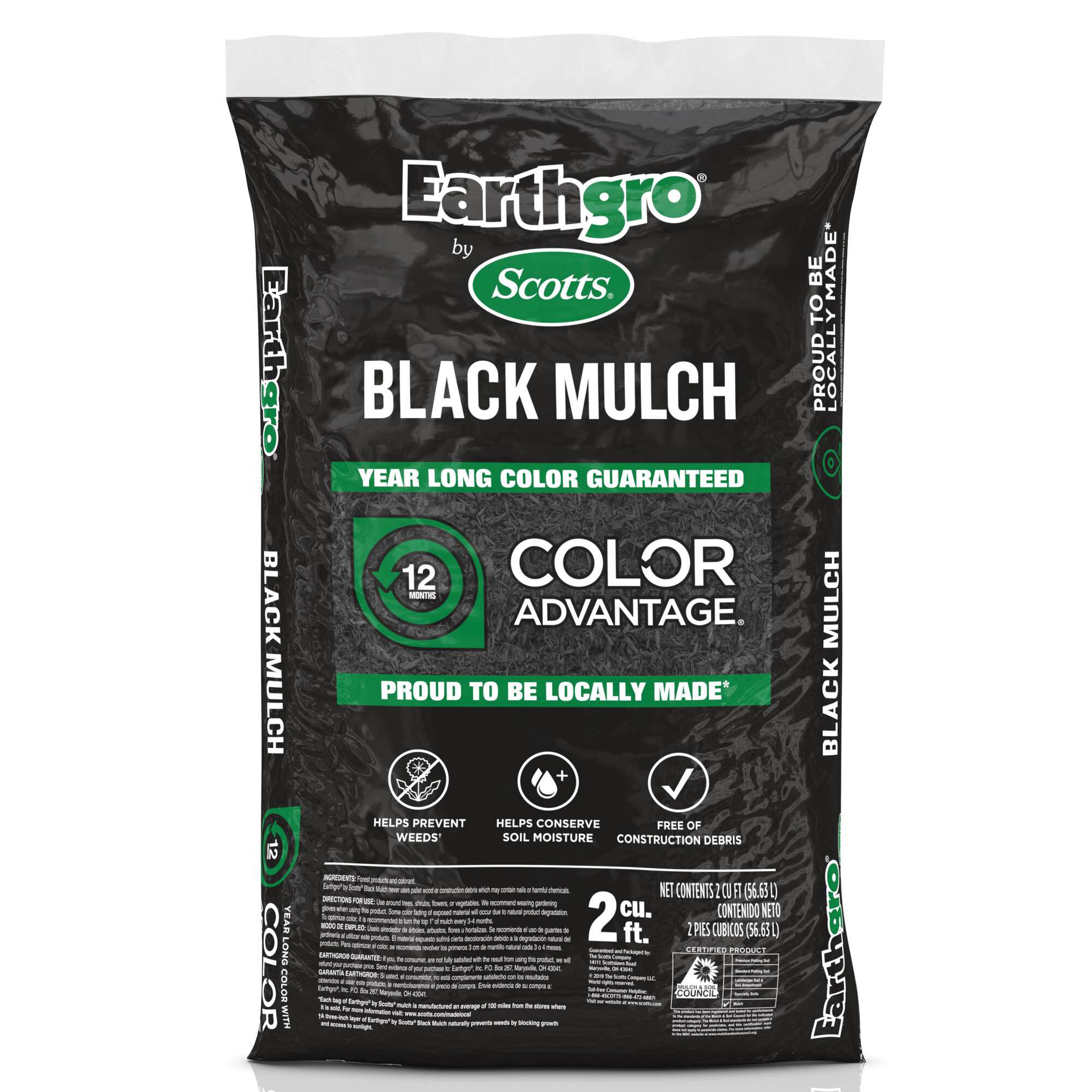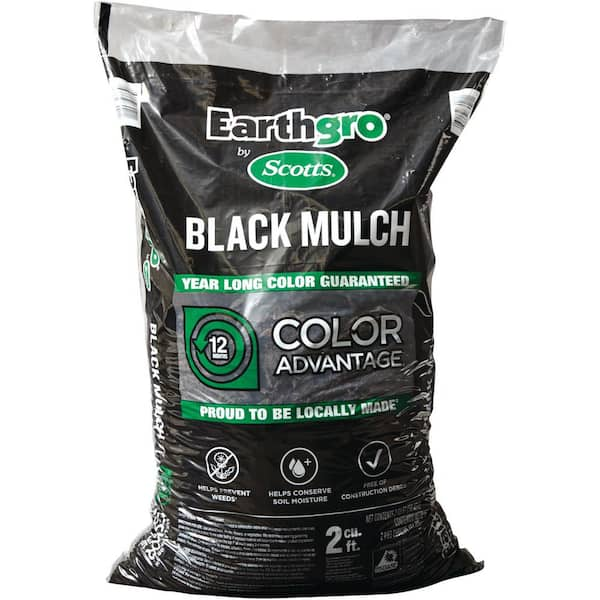Earthgro Black Mulch: The Ultimate Guide To Using This Versatile Mulch
Earthgro Black Mulch: The Ultimate Guide to Using This Versatile Mulch
Black mulch is a versatile and effective way to improve the appearance and health of your landscape. It can help to suppress weeds, retain moisture, and keep your plants healthy. In this blog post, we will discuss the benefits of using black mulch, how to apply it correctly, and some of the potential drawbacks.
Benefits of Black Mulch
There are many benefits to using black mulch, including:
- Suppresses weeds. Black mulch creates a barrier that prevents sunlight from reaching weeds, which helps to prevent them from germinating.
- Retains moisture. Black mulch helps to keep the soil moist, which is essential for plant health.
- Keeps plants healthy. Black mulch can help to protect plants from pests and diseases.
- Improves soil aeration. Black mulch helps to improve soil aeration, which allows for better root growth.
- Improves the appearance of your landscape. Black mulch can add a touch of elegance and sophistication to your landscape.
How to Apply Black Mulch
When applying black mulch, it is important to follow these steps:
- Remove any weeds or debris from the area where you will be applying the mulch.
- Spread the mulch evenly over the area, making sure to leave a gap of about 2 inches around plants.
- Rake the mulch to create a smooth surface.
Potential Drawbacks of Black Mulch
While black mulch has many benefits, there are a few potential drawbacks to consider, including:
- Can be expensive. Black mulch can be more expensive than other types of mulch.
- Can attract pests. Black mulch can attract pests such as slugs and snails.
- Can leach dye. Some black mulches are dyed, and the dye can leach into the soil.
Conclusion
Black mulch is a versatile and effective way to improve the appearance and health of your landscape. However, it is important to weigh the benefits and drawbacks before deciding whether or not to use it. If you are looking for a mulch that will suppress weeds, retain moisture, and keep your plants healthy, then black mulch is a good option. However, if you are concerned about the cost or the potential for pests or dye leaching, then you may want to choose a different type of mulch.
If you're looking for a high-quality, black mulch that will improve the health and appearance of your plants, then you need to check out Earthgro Black Mulch. This mulch is made from recycled wood waste, so it's good for the environment and it won't harm your plants. It also has a number of benefits, including:
- It helps to retain moisture in the soil, which can help to keep your plants healthy and prevent them from drying out.
- It helps to suppress weeds, which can save you time and money on weeding.
- It helps to improve the drainage of the soil, which can help to prevent root rot and other plant diseases.
- It helps to keep the soil temperature consistent, which can help your plants to thrive.
- It helps to keep your plants clean and free of pests and diseases.
If you're interested in learning more about Earthgro Black Mulch, then I encourage you to visit Garden Wiki. They have a wealth of information on their website, including product specifications, installation instructions, and customer reviews.
FAQ of earthgro black mulch
Q: What are the benefits of using Earthgro Black Mulch?
A: Earthgro Black Mulch is a type of mulch that is made from recycled rubber tires. It has many benefits, including:
- It helps to retain moisture in the soil, which can help plants to grow healthier and more vibrant.
- It helps to suppress weeds, which can save you time and money on weeding.
- It helps to improve the drainage of the soil, which can help to prevent root rot and other plant diseases.
- It helps to protect the soil from erosion, which can help to keep your plants healthy and your landscape looking its best.
- It is a sustainable product that is made from recycled materials, which is good for the environment.
Q: How do I apply Earthgro Black Mulch?
A: To apply Earthgro Black Mulch, you will need to spread it around your plants in a layer that is 2-3 inches thick. You should start by removing any weeds that are in the area where you will be applying the mulch. Then, spread the mulch evenly around the plants, making sure to leave a 2-inch gap between the mulch and the stems of the plants.
Q: How often do I need to reapply Earthgro Black Mulch?
A: You will need to reapply Earthgro Black Mulch every year or two, depending on how much it is used. If you have a lot of foot traffic in your yard, you may need to reapply the mulch more often.
Q: What are some of the drawbacks of using Earthgro Black Mulch?
A: There are a few drawbacks to using Earthgro Black Mulch, including:
- It can be expensive, especially if you need to apply a large amount of it.
- It can be difficult to find, especially if you live in a rural area.
- It can be difficult to remove, if you decide that you no longer want to use it.
Q: Is Earthgro Black Mulch safe for plants?
A: Yes, Earthgro Black Mulch is safe for plants. It is made from recycled rubber tires, which have been treated to remove any harmful chemicals. However, it is important to note that Earthgro Black Mulch can be hot, so you should avoid applying it to plants that are sensitive to heat.
Image of earthgro black mulch
- Image 1: A close-up of a pile of earthgro black mulch. The mulch is a deep, rich black color and has a fine texture.

- Image 2: A landscaped bed with a layer of earthgro black mulch. The mulch helps to define the bed and creates a striking contrast with the surrounding plants.

- Image 3: A tree surrounded by a ring of earthgro black mulch. The mulch helps to keep the soil moist and prevents weeds from growing.

- Image 4: A flower bed with a layer of earthgro black mulch. The mulch helps to suppress weeds and keep the flowers looking their best.

- Image 5: A walkway with a border of earthgro black mulch. The mulch helps to define the walkway and creates a stylish accent.

Post a Comment for "Earthgro Black Mulch: The Ultimate Guide To Using This Versatile Mulch"